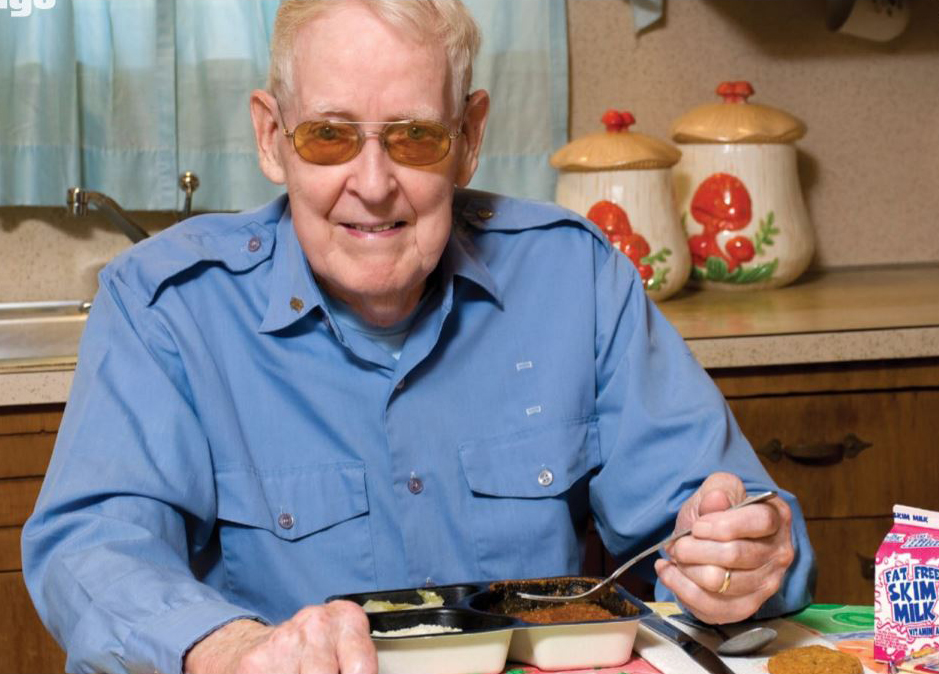
Choosing between buying food and paying the rent or purchasing medication is a reality for 240,000 Arkansans aged 60-plus. According to a 2014 report from the DHS Division of Aging and Adult Services, 40 percent of older Arkansans experience food insecurity, making Arkansas first in the nation in senior hunger.
Financial hardship, lack of transportation, living in areas with few food stores and mobility limitations are major contributors to these chilling statistics.
“We all have a part to play in reducing senior hunger,” said Tomi Townley, Older Adult Outreach Manager of the Arkansas Hunger Relief Alliance. “Building a sustainable statewide initiative first means educating our state about the problem.”
In Arkansas, 21 counties have been designated as food deserts, where people of all ages have difficulty obtaining nutritious meals. But for seniors, who are often isolated and inactive, the problem of receiving adequate nutrition is compounded.
“Our vision is to create a coalition like No Kid Hungry that will pull all the best ideas together with the organizations who can implement them to make big strides in ending hunger among older Arkansans,” said Townley.
Today nonprofits in Arkansas are meeting this daunting challenge with creativity and persistence. Here are 10 innovative local programs and potential national strategies that could be put to work in Arkansas communities.
1. Arkansas Senior Hunger Summit – In October of 2014 the Arkansas Hunger Alliance held the first Senior Hunger Summit to learn from hunger relief experts and share information on the successes and challenges experienced by older people in Arkansas. More than 200 participants shared information about successes and the challenges of senior hunger in their communities.
2. Business Plans for Senior Meal Programs – Jerry Mitchell of Area Agency on Aging of Northwest Arkansas said running congregate meals programs for seniors can be more cost effective when implementing strategies like:
- Negotiating with grocery stores to secure a single food supplier at the lowest cost.
- Monitoring and changing menus to ensure what is being cooked is being eaten.
- Training staff to order efficiently and prepare appetizing food.
- Exploring catering for other community groups and organizations.
- Convenience Store Nutrition – For some rural Arkansas seniors, convenience stores are their only shopping option. Arkansas Hunger Relief Alliance is working with these stores to provide nutritious options like fresh fruits and vegetables in rural convenience stores and to use tours of these stores to help seniors make nutritious food choices.
4. Double Dollars – More and more farmer’s markets around the state are participating in the Double Dollars program that allows older people who receive SNAP benefits to purchase twice as much food for the same price at local farmer’s markets. A recent Hunger in America survey said the number one thing seniors want more of is fresh fruits and vegetables.
5. Friends and Neighbors Network – A partnership between First United Methodist Church in Little Rock and the Arkansas Foodbank Network is helping friends and neighbors in a downtown high rise work cooperatively to reduce hunger. FANN Coordinator Elaine Bultena said twice a week 18 households come to the church to unload and distribute about 500 pounds of supplemental food that allows them to have more fresh and nutritional meal options.
For an outlay of about $200 a month from the church, the participants – about half of whom are seniors – have a consistent source of more nutritious food. The participants also hold programs to learn more about nutrition and other issues, and they decide where the small dollar dues they pay to FANN are spent – the last vote gave a donation to the Arkansas Foodbank and funded a community picnic.
6. Meals on Wheels – Area Agencies on Aging and other nonprofits statewide are a part of the national Meals on Wheels network. Home-delivered meals to homebound older people is not a new idea, but enhanced menu options and modern meal preparation allow more nutritious meals to be prepared and served to those who welcome the human contact of volunteers along with their hot meals.
7. Mobile Food Markets – Though none are up and running today in Arkansas, groups like the Arkansas Hunger Relief Alliance are exploring the possibility of mobile food markets that bring the chance to purchase nutritious food to small communities. In this model, a bus run by volunteers takes nutritious food into food desert counties on a regular basis.
8. Senior-Friendly Food Pantries – Arkansas Foodbank, with a grant from Walmart, implemented a program to increase seniors access to food pantries though outreach, designating special senior hours, assisting with SNAP applications, ensuring pantries have foods seniors like and redesigning delivery systems. Phase two of the program is the creation of model Food Pantry sites that exhibit best practices and help train volunteers.
9. SNAP Bingo – Fun and games are used to promote SNAP benefits to sometimes resistant older Arkansans at retirement centers and senior housing units. To get more information out on this government program that helps seniors purchase more nutritious food, the Arkansas Hunger Alliance is playing SNAP Bingo.
10. What a Waste! – The National Foundation to End Senior Hunger’s program in senior centers in Washington, D.C., measures waste from congregate meals to help guide future menu choices and uses food waste as compost for growing healthy vegetables and fruits to supplement meals.
